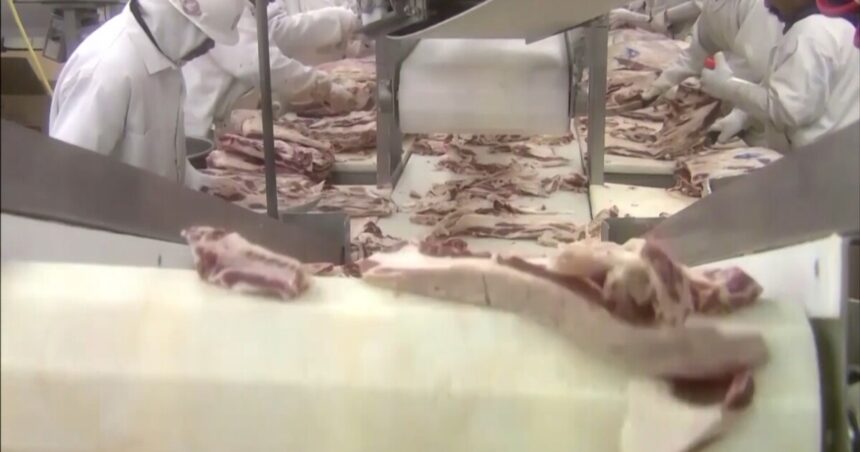The United States Department of Agriculture (USDA) began the process of making a new rule this summer for a law that was enacted by Congress over a century ago.
Recently, the agency released a report focusing on competition within the beef industry.
The USDA report, “Interim Report: Competition and Fair Practices in Meat Merchandising,” reveals that four beef packers processed 81 percent of the nation’s beef in 2021.
This data is concerning for numerous ranchers who believe it affects their profits.
Bill Bullard, R-CALF USA C.E.O., stated, “The same conditions that existed back then are still present today. We see a disparity in market power.”
When the 1921 Packers and Stockyards Act was passed, the USDA noted that five packers handled 82 percent of the nation’s beef, prompting the legislation to address market concentration.
“The intention was to stop the use of unfair practices aimed at independent producers in the industry,” Bullard added.
Today, very little has changed.
Highlighted in the report on page 2, the USDA pointed out that “retailers, distributors, and packers may be partaking in actions that breach the Act, such as unfair business practices and undue favoritism in pricing, fees, marketing choices, and overall dominance to the detriment of fair competition.”
This summer, the USDA unveiled a new rule proposal that has yet to be implemented, which aims to establish clear guidelines and frameworks to strengthen the USDA’s ability to enforce the Act and promote competitive markets that benefit ranchers.
Gilles Stockton, a member of Northern Plains Resource Council, expressed, “We are pleased with the rules presented by Secretary Vilsack and USDA and anticipate their enforcement.”
The American Meat Institute opposes the proposed rule change, asserting it attempts to bypass Congress and the judiciary system.
The Institute’s board, consisting of over 80 members, includes representatives from the four largest meat packers: JBS Foods, Cargill, National Beef, and Tyson Foods.
Mark Dopp, the Institute’s Chief Operating Officer and General Counsel, stated in a news release, “Changing the harm to competition standard requires Congressional action. The proposal contains standards so unclear that compliance would be impossible for regulated entities.”
However, ranchers like Stockton, a resident of Grass Range, disagree.
“The current happenings in the cattle markets are not ethical or legal,” Stockton expressed.
He stands behind the efforts of R-CALF USA, Northern Plains Resource Council, and other organizations striving to enhance competitiveness in the market.
“The rules are essential to address the unequal market power between independent producers and multinational meat packers,” Bullard emphasized.





